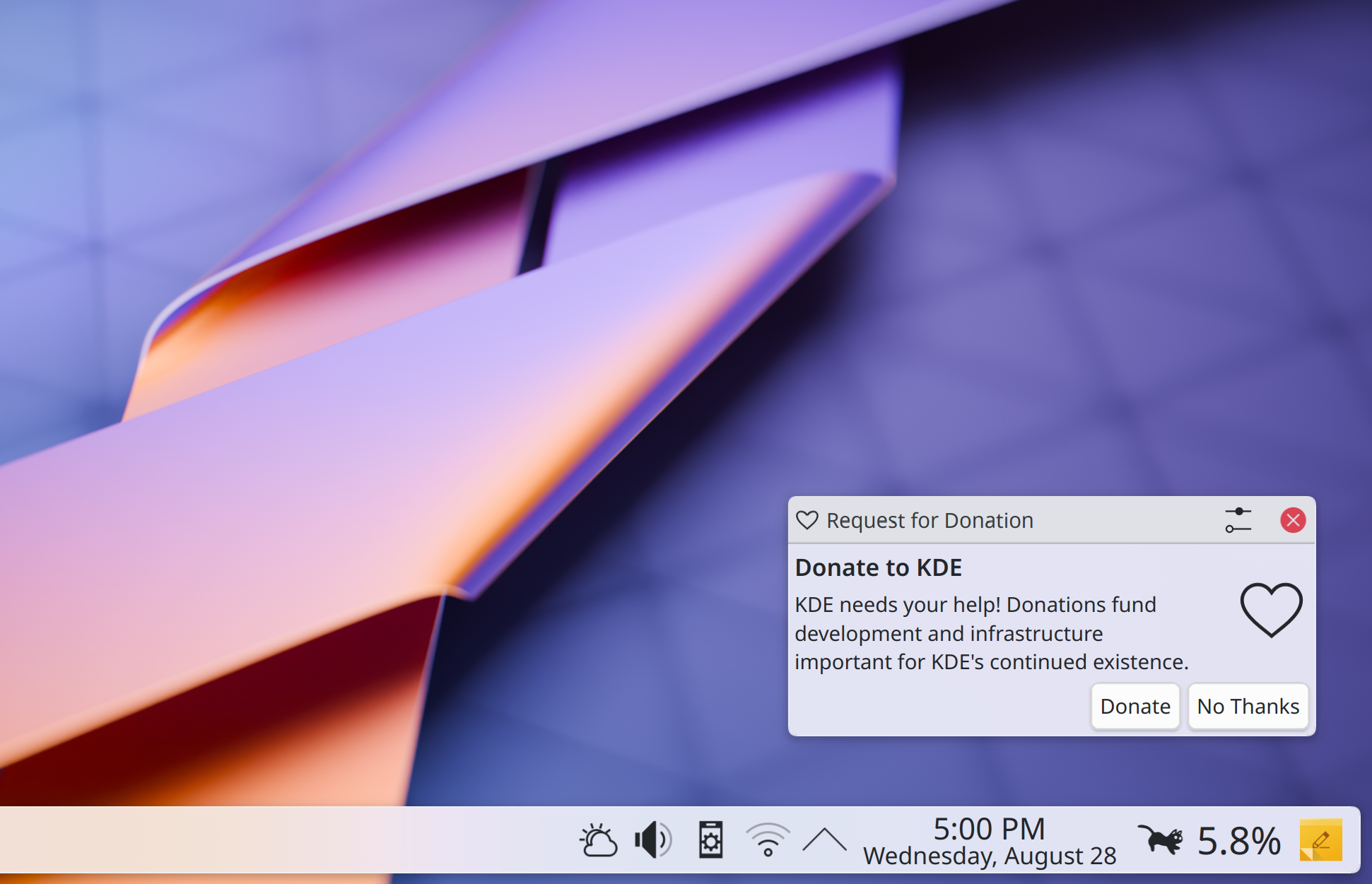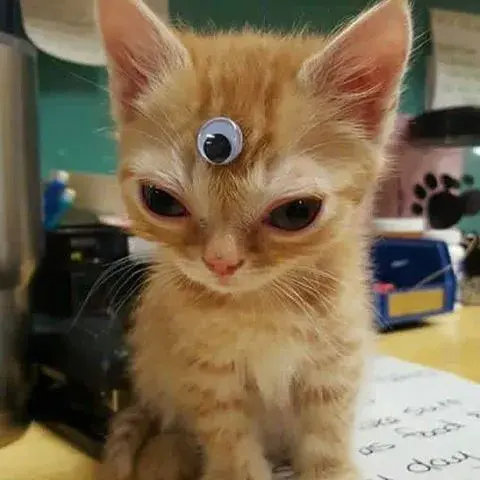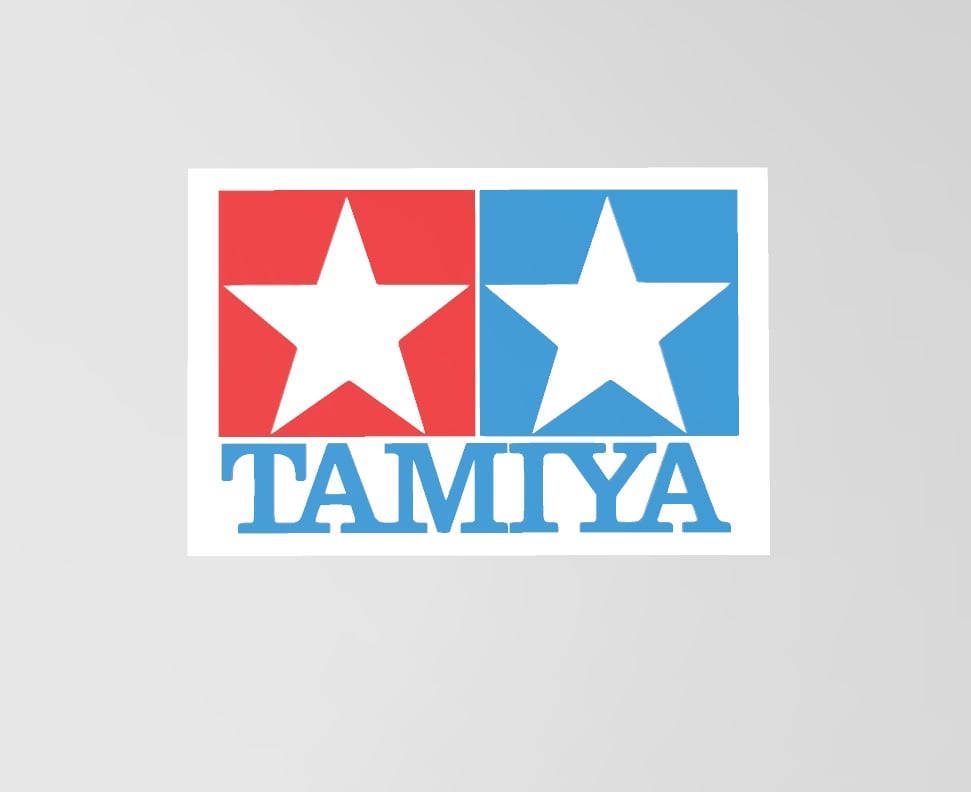- cross-posted to:
- news@lemmy.linuxuserspace.show
- linux@programming.dev
- cross-posted to:
- news@lemmy.linuxuserspace.show
- linux@programming.dev
Seems like a reasonable donation prompt; it’s infrequent, unobtrusive, and can be easily dismissed and disabled. Some people are so sensitive to the idea of any sort of soliciting that they forget projects do need money to function.
Yup. I like their just in December approach too. I have a problem with distrohopping so I’m often re-setting up my system. Every time I do, Thunderbird pops up donation prompts both in the app and in my browser. I get why they do it, but it’s annoying when that happens. KDE’s approach avoids this pitfall.
Some people just don’t like their OS being used for that purpose and want it to be just a tool that shuts up and does exactly as it’s told and no more. I can see that point of view. Our computers aren’t free billboards. It’s like when car dealers stick their own custom logo on the cars they sell to people.
The difference is, that you’re using something for free, and you can disable this very easily.
[This comment has been deleted by an automated system]
Those people are completely misinformed then. The OS did not come free. You paid for it. You pay for the license every time you buy a computer. If KDE had that then yeah it would by annoying, but they probably wouldn’t be asking then.
Most places tell you how much you are paying for it. I have to go out of my way to not pay for it since I don’t plan on using windows when I buy a new device.
The Windows is not free. The OEMs pay a license fee and that cost is passed on to people buying those computers.
deleted by creator
“The price is included” so you did pay for it. That alone makes the comparison invalid and its pointless to even compare a free community developed product to a paid product by profit company on a revenue discussions.
I get that. I was just saying why it might tick some people off. My idea of a good OS is one that you don’t even notice while using it. It just sits in the background doing its thing and you don’t have to think about whether you’re using KDE, Gnome, or whatever, because it never makes itself known and you just happily use your programs.
In my opinion no OS manages such a feat of making itself unknown, there are always some problems, and I think you agree with that in practice (it’s more a matter of thresholds). So there is continuous improvement. The question is then whether or not the possible financial boost from the donations will improve the OS in such a way that the net benefit is positive with respect to the negative value of the donation notification (a utilitarian viewpoint, I guess). I would say it will be a net benefit, not least because the negative value of the notification is so small.
I understand this, but we need to be reasonable and avoid extremes. This software is extensively free (as in beer) and requires development support. As long as the prompt doesn’t cross any lines into exploitive territory I think it’s fine. It would be nice for them to have explored other fundraising avenues first though and have saved this as an exhaustive “final” option.
This software is extensively free (as in beer)
No…it’s not. It’s free to download and to use, but the expectation that people contribute in exchange for using it is how FOSS has always worked.
That doesn’t necessarily mean monetary. But contributing can be helping with user guides, or making youtube tutorials, or even just extending the reach of the program to friends and family by talking about it.
There are many ways to contribute, and money is one. But the notion that Open Source software is “free as in beer” has never been correct. Users have an expectation to contribute…period.
Not sure what part of the open source community you’ve been diving into, but the expectation of contribution to the project is not realistic nor logical as there’s not “always” something a person can contribute and you’d absolutely run afoul of “too many chefs in the kitchen” (even Wikipedia acknowledges this and has structured editing in a way to help alleviate the issues). Though open source for me, and a lot of others, has always embodied passion, a desire to aid the community, and a drive to prevent closed alternatives. None of that is based around “co-op” style expected contribution development. Hell, even Stallman famously addressed my “free as in beer” statement, saying that open source is more akin to “free as in speech” overall, but since this particular project is not monitizing and are GPL 2 licensed, they are absolutely free as in beer.
I’m not really talking about development as simply programming. There are a lot of aspects that go into development, yes…programming is a big aspect.
But there’s also bug reporting (every user should know how to report bugs because it’s contributes to making the program better).
Heck, you can even download the documentation and give it a proof-read if you’re good with grammar and spot some errors if you don’t want to commit to helping to write it.
I know a lot of people who spend a lot of time in the various subs for the software, taking care to answer questions from other users who need help doing this or that. That again, is contributing.
Then there’s simply what we’re doing right now. Bringing attention to the projects online getting them more visibility.
Development of a successful FOSS app isn’t just about programming. And even small contributions count. If you can donate some coin, great! If you can’t, or don’t want to, there are a thousand other things that you can do to contribute to that apps community.
I emphasized the word community because that is exactly what it is. The ethos of Open Source; what makes it different than Propietary software, is that the users are an inherent part of the development process in ways both big and small. In propietary software, there is a distinct line between the developers and the users. Developers have multiple stakeholders of which the user base is certainly one, but also include advertisers, software makers, hardware makers, etc…
FOSS software, in contrast, is much more a communitee effort with the involvement of the community in the way of bug reports, literature, education and even simply championing the project because they don’t have millions of dollars in advertising budgets.
Sorry, I get a little passionate, so this is longer than I intended it to be.
But tl;dr, contributing isn’t just about money or just about programming. There’s a thousand ways big and small, and my issue isn’t with people not “paying” necessarily. But people who use it for free and don’t bother filing bug reports, don’t join the community online to help answer user questions, etc…
A good FOSS citizen should be an active part of the community. Or donate money to the project if they’d rather not.
I see what you mean and understand you. It’s very idealistic and I appreciate the thought of it, but it just won’t apply to a modern world full of varied people in the way you wish. The reality of it is that most people simply are not interested in participating and it’s not in the best interests of any project to expect to change that. Contributions from someone who shares no passion or interest will be less qualitative at best. That’s not even to mention that you’re likely missing the forest for the trees, as most open source software is built upon hundreds of other projects. You cannot reasonably expect participation on that scale. You can encourage, desire, or structure an income stream to support it; but you cannot expect it as it’s just not rational.
A lot of people here have such a bizarre stance.
People have put work into this, for free. And the moment they ask for support, you immediately bring the pitchforks out, over a singular pop-up you can permanently disable? That’s just plain disrespectful, at the very least
Unfortunately, there has always been the issue that a not-insignificant percentage of users of FOSS software believe the FREE part means “free as in beer” and take umbrage when asked to contribute.
I’ve long been a proponent (and I know I’m in a minority) that has advocated for a shift in the marketing of FOSS applications from “donation based” to “value based”. Meaning that the expectation is that if you enjoy the software, you pay an amount that you believe is commensurate to your use. This is voluntarily of course…if you can’t pay, than please use it and enjoy it. But those who can pay, should pay…at least a little bit, to offset the costs for those who can’t.
It’s more or less that the wording of FOSS apps needs to change so that you are expected to contribute if you can.
Just my opinion. Like I said, I know I’m in the minority. Just not a fan of the percentage of users that has always existed that (falsely) think that asking for money for your project is somehow anathema to the Open Source ideal and whine whenever they’re asked to contribute.
Also what the hell is up with everyone saying “free as beer”?
Beer isn’t free!
The full saying is “Free as in Speech, not Free as in Beer”
Basically the “Free” in free means that it’s free to do with as you please, modify, etc… But not free as in “here’s a free product…like getting a free beer”
That’s also confusing and it is not the full saying. The full saying is “free as in free speech, not free beer”.
From the FSF website:
Free software is a matter of liberty, not price. Think of “free” as in “free speech”, not as in “free beer”. Free software is a matter of the users’ freedom to run, copy, distribute, study, change and improve the software.
I have over €1500 donated to opensource projects.
I have only once bought a commercial software license worth €7/lifetime.
Maybe donate 50 cents for every hour you used the software and it was useful to you.
That would be 1000 €$ per year if you work with Linux full time.
Let’s see some commercial software:
Microsoft Office 365 is 70 $€ per year. Adobe Suite around 700 $€ per year. IntelliJ IDEA about 170 $€ per year. Affinity Suite is 170 $€ once. Reaper is 60 €$ for a discounted license. Full featured media player like Elmedia costs 20 $€. BBEdit costs 60.
The FOSS windows and Mac FTP client Cyberduck asks for a minimum 10 €$ donation. It won’t prompt you for a donation if you bought a license. The Duck applications are all pretty nice.
While I absolutely agree with what you are trying to say and donate to kde myself already. The issue with a lot of comments like yours is that the examples you use are almost always commercial software that already only see’s limited use. I get value out of non commerical use applications such as dolphin, kate, konsole, and kdeconnect. Finding examples of popular paid versions of those applications would go a long way in my opinion because it would be something that more people can relate to.
The problem I see with the examples you are giving are the same problems I see when someone uses those examples as reasons why they can’t switch to linux in the first place. And that is the fact that while those programs are popular. They aren’t used by the vast majority of people who don’t have a work related need to use them. Half the people that claim it as an excuse probably don’t actually use those programs as well.
Your examples such as Cyberduc, Elmedia, and BBBedit are your stronger examples. Again just my opinion.
The Duck applications are all pretty nice.
They make more apps than just Cyberduck?
Mountain Duck and Cryptomator
I like that terminology. I use some very high quality, high visibility FOSS software and sometimes feel bad that I more frequently donate to smaller projects that bring me value by filling a specific want or need that no one else is working on.
I’m not against the idea, but I do think it’s a bit unfair. There are dozens of projects KDE relies on that never even get the chance to ask for donations this way, simply because they don’t need a GUI.
I believe KDE should at least offer to share the donations with other projects, projects that would otherwise have no voice. Something like the old Humble Bundle donation method would work really well, and let users to choose how their money is allocated.
While I understand where you are coming from. That goes for a lot of projects in general. Not to mention that KDE is literally an example of the thing you are talking about. KDE has an entire ecosystem of libraries that anyone can use called kde frameworks with many examples of these libraries being used on various projects large and small outside of KDE. They don’t see a dime from this either. I recall a conference on TechHut’s youtube channel spotting KDE’s frameworks in the wild being used by companies at the event.
And KHTML! Basically, KDE work is the foundation of the browser engines behind Chromium and Safari.
The one change I would make would be adding a “never” button to the notification so you don’t have to disable it in the settings if you don’t want it
Or actually “Don’t show again” would probably be better phrasing
From experience with Windows “freeware” some of us have seen what happens when such pop-up notices become commonplace. It is not pretty.
This isn’t Windows, and this isn’t freeware
This isnt freeware.
“Free” in free software is free like free speech, not free as in beer.
This is one of the places where english fails. Libre vs gratis
Sorry, I was assuming everyone knew that. Should’ve said “nagware” instead.
If you don’t like it, don’t use it.
Then you also don’t cause any more cost to the KDE project.The claim that more users increases costs for the KDE project in any meaningful way is another thing that might be disputed. The examples given do not seem convincing.
So the reason it makes me uneasy is that at the same time as I do want KDE to succeed, I do not want this tactic of begging for money in annoying little on-screen pop-ups to succeed. If it does, then perhaps it might spread to other free software projects. If all of the hundreds of them that go into a linux distribution start feeling free to make their demands it will be a real mess. As some old philosopher said: To judge the morality of an action, consider what would happen if everyone did it.
I remain an Xfce user. They also accept donations.
It’s not complicated.
It’s an ad.
There’s no version of advertising I will ever be OK with.
Not an ad. No one is trying to sell you anything.
(If you get the notification) you’re already using their product.
Yes, it is an ad. Any call to action is an ad.
And its mere presence will ensure I don’t give them any more money. The core concept of inserting any ad in an OS is not behavior I am willing to reward.
This is not an OS behaviour. KDE is a desktop environment.
If it bothers you so much, remove the DE and use the command line, full time
So, asking you to VOLUNTARILY donate IF YOU WANT to with a pop-up you can simply ignore and/or disable is advertising? I don’t understand… I mean, they give you a product for free, full of good features and updated regularly, and the moment they ask you to donate, again, IF YOU WANT to, it’s considered advertising…
You’re so sad, dude.
Yes. It is literally impossible for an organization asking for money not to be an ad.
And yes, showing me a single ad once means I never give them money again. I am not OK with ads.
Don’t use KDE then🤷♂️
Those assholes! They should make an OS for free!!! How dare they ask for support?!?!
No one forces you to support them, if it’s so annoying just disable it. I wonder if makes you happy work for someone for free… Hope it will happen to you so you’ll understand how bad it is :)
Cya
so lemmy on their join-lemmy.org site have this, https://join-lemmy.org/donate
Goodbye?
lmao, good one!
and then he down votes my comment
That’s an interesting logic. You do realise that at least 50% of the groceries in your local store are likely to have been advertised somewhere. Guess you should stop buying groceries too…
Drink some water!
…was that an ad?
Stop it, you’re scaring him!
Ads try to sell you something, there is no “call to action”. Here, there is nothing to sell, so by definition it’s not an ad.
They are just asking you if you’d like to help them in providing you the product you’re already using.
You pretty clearly don’t know what a call to action is, or an ad is, because “please give money” is very obviously a call to action, and many ads make no effort whatsoever to sell any product.
Then just not use it? You could even ask for a refund, I’m sure they’ll give it to you.
Your entitlement is Karen level.
You’re advertising your opinion here, is that okay?
Now this is much better than getting ads in your Start Menu.
As long as the “No Thanks” button is a one and done go-away button, I think this is a decent idea!
It’s once per year, easily dismissed, and can be permanently disabled. Seems entirely reasonable for a piece of free software that someone would use everyday
I do suspect a small but vocal crowd of people will spread doom and gloom about it on social media anyway, of course.
I see they’re here already
No problem… Once a year is fine. It’s a non-profit based in Germany…
Thunderbird shows it once at every startup…
Thunderbird shows it for a at every startup
Honestly didn’t realise till you pointed that out. I’m so used to seeing it that it doesn’t register to me what it’s saying anymore. Probably for the best that KDE only does it once a year; if it were daily I’m sure it wouldn’t even register to people that it’s asking for donations.
WinRaR has begged me for money for years
Why use winrar when 7zip and peazip are right there?
While I was still on Windows, the killer feature that kept WinRar installed, instead of only using 7zip, was the simple fact that its file explorer supported hotkeys like Ctrl+C, and that you could seamlessly copy files to and from Windows’ file explorer.
I’m pretty sure PeaZip supports these as well
PeaZip is nice. I don’t use 7zip because it looks and feels ancient. Both are open source and better than WinRAR though.
Well, you do in theory need a license to use winrar for more than 30 days
Thunderbird was dead until it added a donations banner then used the donations to hire some programmers.
deleted by creator
deleted by creator
I kinda thought this was some new crowd funding scheme…
I didn’t get that notification yet,but when I do,l’ll be sure as shit to donate as large amount as I can afford.
Edit: I know I can and have donated already,but just to highlight the idea
I personally think once a year is not enough. Every 6 months might be better. Also people already spend a lot during December that they might not prioritize donating to KDE.
For those complaining… Well I don’t know what to say to them. Such a big complex software which is 100% free should be allowed to remind us that they need money.
Don’t forget they said it’s running as a daemon specifically so you can easily disable it if it triggers you so much.
it’s running as a daemon specifically so you can easily disable it
It occurs to me that even if I were a KDE user, I probably wouldn’t see it. I’m not a DE developer, so I’d be getting the packages through Debian, and the people who package things for Debian tend to remove such prominent features that for the users are all cost and no benefit.
I suspect that none of the people who are “complaining” are doing so because it’s some kind of personal inconvenience that they’d find intolerable. The only thing it does to make my day worse is to slightly cheapen the reputation of the KDE project, and by extension — since it is such a popular and highly visible project — that of free software in general.
FOSS in general needs better means of financial support. While the software is free and libre, developer time is not, and ultimately they gotta eat and pay bills. I hope they get positive results and don’t catch much unnecessary flak.
I mean, at least I’m not paying $200* for the privilege of being advertised to… I’d like an option to disable it permanently in the popup but it seems mostly reasonable?
^* This is the first price I got for a Windows licence when I searched for it. I know you can probably get them cheaper, but that’s the price they’re advertising, so eh.^
There is an option to disable it permanently. Otherwise it is once a year and easily dismissed
Why?
People spend countless hours building the software you use for free. Now they need to buy actual hardware yo build and test that software and what? They have to pay with their own money besides all that time they spent already so that you can continue to use this for free?
You’re not forced to pay anything, they’re asking for small donations
Either i wasn’t clear or you are replying to the wrong person, but i am in support of foss projects asking for donations in a reasonable manor such as this
deleted by creator
cool and good. thunderbird is also very good about this and more projects should present their donation stuff just as tastefully
Have you visited Wikipedia lately? I’ll gladly donate to KDE when I see this next time.
Instructions unclear, blood is spinning down in the centrifuge.



























